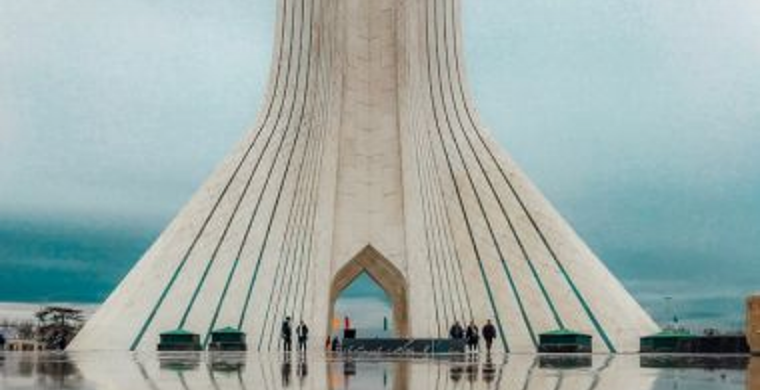In Iran, Christians have learnt to be prepared for persecution
https://www.christiantoday.com/
15 May 2021
Saghar arrived at the airport with trepidation. She knew it would be a miracle if she were able to leave: she felt sure that the warrant for her arrest would have been issued by now. When she finally found the queue for her flight, her heart froze: standing there was one of the secret police officers who had raided her house a few days ago.
Saghar grew up in a Muslim family in Iran. However, as an adult, she had decided to convert to Christianity. She started gathering with other Christians to worship and pray. It was always a risk to attend these meetings, but the fellowship became like a family and supported each other. Eventually, Saghar decided to take the most dangerous job in their house church: she became a pastor.
It was not long before she came face-to-face with the secret service, who raided their church. They were holding a meeting when the police forced the door open with a crowbar but did not raise their voices to avoid the attention of the neighbours. Before any of the church members realised what was happening, women were pushed into one room, men into another.
Being a Christian convert or an evangelist is always challenging and problematic in Iran: house churches are regularly raided, and dozens of Christians end up in prison each year. During interrogations, security officers force Christians to give up the names of other church members and work hard to destroy the church from within. Saghar's church was no different.
Many Iranian Christians attend persecution preparedness meetings to share knowledge and learn about the practical and psychological ways to endure a raid with as little damage as possible. Just a few months before the raid on her church, Saghar had attended such a meeting.
After the search of her house church was completed, Saghar was called to the living room for interrogation. The room was full of burly men; one of them was filming everything.
From the "persecution preparation" sessions she had received, she remembered she needed to let someone outside know about what was happening. "Can I go to the restroom?" she asked the friendliest officer. In the restroom, Saghar quickly snapped a selfie and sent it to the outside world: "Please pray for us, our church is being raided!" she messaged.
When she started deleting evidence from her phone, one of the female officers pushed on the toilet door trying to force it open. But Saghar had learnt that the officers had no right to intrude toilets. Saghar firmly told the officer about her rights, making the officer back off reluctantly.
When the officers told Saghar she was going to be arrested, she confidently asked for the warrant and prevented being taken away to prison immediately.
By the time the warrant was issued, Saghar had already managed to plan her escape: she packed her things and booked a flight out of Iran, to a place of safety. Now she just had to board the aeroplane and take off.
Saghar finally boarded the plane without being noticed by her interrogator. She took one last look from the small window at her country that she loved dearly. But fear paralysed her. If the secret service caught her, she knew she would end up in one of Iran's infamous prisons.
While she was seated, the security service in the airport called her name. They had, at that precise moment, received the warrant for her arrest. However, they were too late. Saghar's plane had taken off, flying her to safety.
Open Doors met Saghar four years later in her country of refuge, which cannot be named for her safety. She said that despite her miraculous escape, the events left their mark on her. For the first year in her new home she had the same nightmare every night: the traumatic scenes of the raid. However, she knows that the alternative scenario, where she was still waiting in line at passport control, when word got through, was far worse.
Saghar is hoping and praying that her former fellowship in Iran is safe and continuing her mission without her.
Iran is number 8 on Open Doors' World Watch List, a ranking of 50 countries where it is most difficult to be a Christian.














